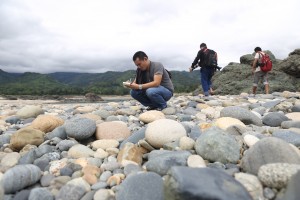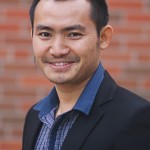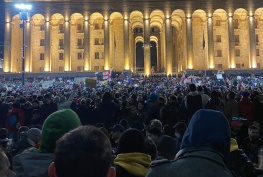Burma is one of the world’s champions of media censorship. The Committee to Protect Journalists recently ranked my country as No. 9, while listing Eritrea and North Korea as the most censored countries worldwide. Should I be proud of this?
Ironically, yes. Burma, also known as Myanmar, was ranked No. 2 in 2006 when I started working as a journalist, so this ranking is an improvement. At that time, the country was ruled by dictator Than Shwe, a retired general who led The Burmese Army, also known as Tatmadaw.
Newspapers inside Burma did not dare to criticize his regime and its poor human rights record. Than Shwe’s regime imposed heavy censorship and all editors and publishers inside Burma had to submit articles, commentaries, pictures, cartoons to the state’s censorship board before publishing them.
Except soft news, no journalist inside Burma would dare to report on the opposition leader, Aung San Suu Kyi, or politics. If journalists did not submit their articles, photos and cartoons to the state’s censorship board, they would be at risk of spending time in jail.
Since I was based outside of Burma while I was working for The Irrawaddy, I was able to cover controversial issues like politics and human rights. The Irrawaddy was founded in Thailand after several Burmese journalists were exiled. Due to our independent reporting, The Irrawaddy was branded by the regime as “the enemy of the state.”
However, after the quasi-civilian government began running the country, it abolished the censorship in 2012 and many exiled journalists returned to the country.
Journalists began to practice independent reporting, and ran pictures of Aung San Suu Kyi on the front pages of their publications, which they dared not to do when the country was under the military regime. Foreign journalists are now allowed to travel and do reporting inside the country. These are the positive changes in the media arena that I don’t deny. This is something that I never expected.
However, I still worry that Burma could go back to No. 2 anytime. The government recently arrested and jailed students, activists and journalists. There are invisible limits on the press freedom, especially when it comes to reporting on military affairs and the Burmese Army.
The CPJ report pointed out said the Burmese media remains tightly controlled despite the absence of pre-publication censorship. The law regarding printers and publishers still bans news that could be considered insulting to religion, disturbing to the rule of law, or harmful to ethnic unity. Publications that violate the law could lose their license. National security-related laws are used to threaten and imprison journalists who report on sensitive military matters.
In July, 2014, five journalists at the independent weekly newspaper Unity were sentenced to 10 years in prison, reduced later on appeal to seven years, for reporting on a secretive military facility allegedly involved in chemical weapons production. Another three journalists and two publishers at a newspaper Bi Mon Te Nay were sentenced to two years in prison last year on charges of defaming the state due to publishing a false statement.
As I focus my writing on conflicts between the Burma Army and ethnic rebels in ethnic minority regions, I feel there is no safety for journalists like myself who travel to remote areas to cover the conflicts. I wanted to visit northern Burma and write about drug addiction, the drug trade and human trafficking, but never made it. I always had been hesitant to identify myself as a journalist while traveling in conflict zones where both government army and ethnic rebels are deployed. I sometimes was not able to take photographs even though I wanted to.

Saw Yan Naing takes notes during in a reporting trip to Kachin State, northern Burma. (Photo: J Paing/ The Irrawaddy)
In March 2001, I went to cover an earthquake in Shan State, eastern Burma, where the government tried to conceal the causalities. I had to use some undercover tactics to report on what was happening. I hid my phone while visiting a hospital and recorded video secretly. The hospital was full of injured people. Instead of releasing information about casualties, the government army guarded the hospital and didn’t allow journalists and photographers to visit the hospital.
Based on my experiences, Burma’s policy on media freedom is unpredictable. The government still lacks a systematic and transparent policy when dealing with journalists and their work. I feel like the government can take actions against journalists based on personal motivations and not in accordance with the law. Government officials unexpectedly take serious action when they dislike a single word in the reporting by journalists. They also want the country to be called Myanmar instead of Burma and Yangon to be used instead of Rangoon. If we don’t follow their rules, they can end our press freedom overnight by restricting our work and movement.
Working as a journalist in Burma, the press freedom I enjoy today can end tomorrow without warning. My worry is that Burma could go back up the list anytime.





